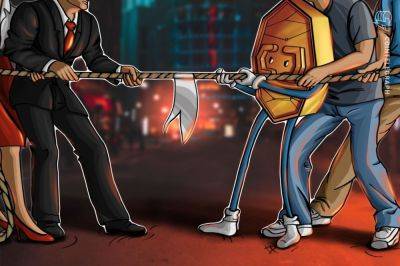Web3 adds semantic layer to Ethereum for a decentralized society
Focusing too much on the tokenization of assets instead of encoding social relationships of trust was a key complaint regarding the current state of Web3 that found a clear voice in a mid-2022 paper published by Ethereum co-founder Vitalik Buterin along with E. Glen Weyl and Puja Ohlhaver. Titled “Decentralized Society: Finding Web3's Soul,” the paper explores soulbound tokens (SBTs), a unique form of nonfungible tokens (NFTs) that represent the credentials of a user.
Nontransferable by design, SBTs have the potential to play a key role in building a decentralized society, according to the authors. However, while an SBT verifies an individual’s credentials, affiliations and commitments, it lacks the social context required for a decentralized society — representing only half the answer by itself.
Decentralized social graphs act as a bridge between SBTs and society by representing each user’s interconnected web of relationships across social networks. Combined with publicly verifiable SBTs, decentralized social graphs present an opportunity to empower users with greater control over their online identities while addressing privacy, security and ownership concerns widespread by centralized social networks.
Social media became a major use case for the internet during the 2010s, with the user base reaching 4.7 billion around the globe, according to reports from 2022. Onboarding even a fraction of the Web2 user base to Web3 would expand the blockchain and crypto ecosystem by a significant margin.
Social networks can benefit from the openness and decentralization of blockchain technology to give control and sovereignty back to users. However, while it’s relatively easy to integrate blockchain into one social network, people rarely
Read more on cointelegraph.com






















